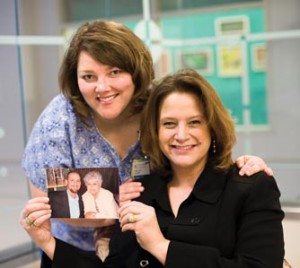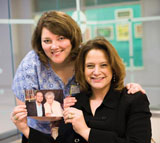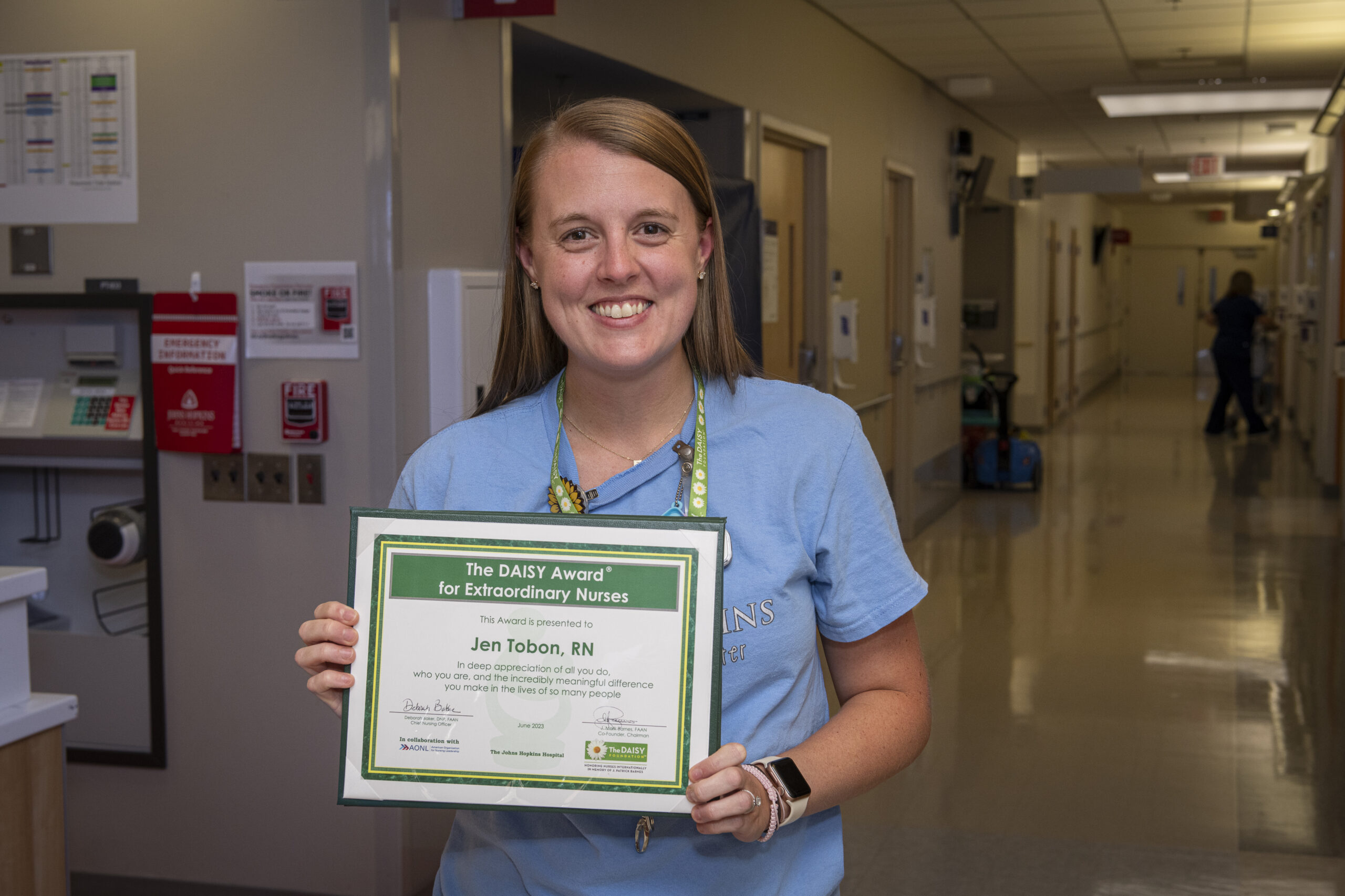How a Hopkins nurse helped my mother be at peace
By Geneane Adams-Bazan
In October 2005, we received the life-altering news that my mom had stage 4 ovarian cancer. I never knew what that meant to my mother or to those who were about to take on the very difficult task of caretaking. Besides cancer, she had other problems that only complicated matters.

Surgery ensued and within weeks, she was beginning the first of many chemotherapy treatments. For two years, she was in and out of hospitals. While her primary hospital was Hopkins, during times of interventions she’d be taken to hospitals nearest home.
As a caretaker, I would not leave her side. I spent many nights in hospitals helping her with whatever she needed. I found that the nurses in many hospitals were so busy, they couldn’t always meet the patient’s needs efficiently, often affecting the patient’s care. I felt that need to be there constantly to assure her needs were met with care.
Then one day at Hopkins, an angel arrived—Amy Brown.
Amy was a floater. She told us that she would probably only be at Hopkins for a short time because her business was to travel around the country working in different hospital departments. Both my mother and I had an instant connection with Amy. She was empathetic, kind, and took the time to listen. When she said that she would get you a drink of water right away, she came right back with the water. She took time to notice whether you might be cold, lonely, or scared and addressed those needs every time she entered the room. Mom couldn’t stop talking about Amy and how great she was. On other stays, when Amy was not there, I would always stay with Mom.
During another visit, Amy popped into the room. My mother was delighted to see her and asked, “What are you doing here?” She told her that she had decided Hopkins was the place she wanted to call home. Mom was thrilled! I knew whenever mom was at the hospital and Amy was there, I could go home and sleep peacefully.
Sadly, my mother’s condition worsened in January 2009, and her battle was coming to an end. We were called to the hospital to talk with her doctor. Amy wasn’t on shift; however, there was another nurse there who was amazingly kind. In my hysteria, she took me aside and talked with me. As we chatted, Amy’s name came up. She told me what a blessing Amy had been to her. She had been a mentor and leader, and I could see how Amy had made a great impact on this nurse. She spoke of her with such admiration.
It was time for mom to come home on hospice, and our family was devastated. The phone rang. It was Amy asking if she could come visit. We were surprised, but welcomed her. She arrived with another nurse by her side. She went into my mom’s room and talked with her, touching her life again. She stayed and talked to the family. She told us she had spent time talking with mom on the day she learned the news. Because mom had a hard time expressing her feelings to the family, we found out from Amy that she was at peace. She had done everything she wanted to do in her life, and her only regret was that she would not be here to watch her grandchildren grow up. As she spoke to us, she held our hands and hugged us. It was only five days before mom passed away.
Among the droves of people at her funeral appeared the face of an angel. Amy arrived with tears in her eyes and sadness for our family. Again, extending compassion, a hand to hold, and a shoulder to cry on. Nursing doesn’t often embrace this level of kindness and compassion, but Amy Brown is a true giver of care. Healing is not always physical, its often emotional, and Amy’s ability to heal emotionally is a beacon that others should follow. She has touched our family in a way no other practitioner ever has and will always hold a special place in our hearts.

 No. 1 Rankings for the School of Nursing and a Pipeline to the “Best Jobs”
No. 1 Rankings for the School of Nursing and a Pipeline to the “Best Jobs” Best of On The Pulse 2023
Best of On The Pulse 2023 JHSON Highlights
JHSON Highlights DAISY Awards Fall 2023
DAISY Awards Fall 2023 Dr. Bonnielin Swenor, Inaugural Endowed Professor of Disability Health and Justice
Dr. Bonnielin Swenor, Inaugural Endowed Professor of Disability Health and Justice






